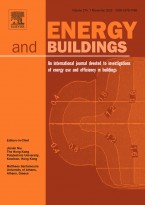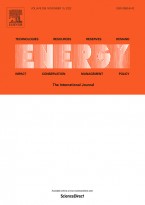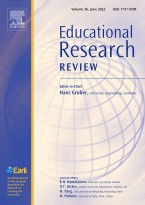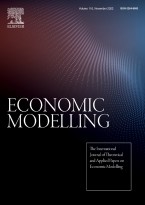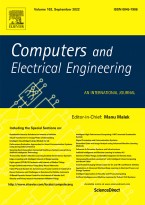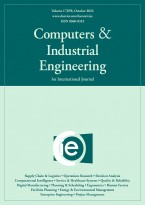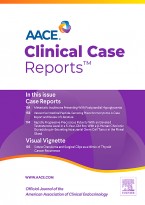
چکیده فارسی
سرطان سینه هورمون ترشح کننده متاستاتیک آدرنوکورتیکوتروپیک درمان شده با آدرنالکتومی دو طرفه
چکیده هدف: سندرم کوشینگ درون زا ناشی از ترشح هورمون آدرنوکورتیکوتروپیک نابجا (ACTH) بیشتر از کارسینوم سلول کوچک ریه رخ می دهد. ترشح نابجای ACTH از یک تومور عصبی غدد درون ریز پستان بسیار نادر است و تنها 7 مورد قبلاً در مقالات گزارش شده است. روش کار: ما یک مورد نادر از سرطان غدد اعصاب سینه تولید کننده ACTH متاستاتیک و ایجاد کننده سندرم کوشینگ را توصیف می کنیم که با آدرنالکتومی همزمان دوطرفه رتروپریتونئوسکوپی مدیریت شد. یافتهها: خانم 51 سالهای با سابقه ماستکتومی دوطرفه برای کارسینوم اعصاب غدد سینه ترشحکننده ACTH با سندرم کوشینگ صعبالعلاج مراجعه کرد. افزایش سطح کورتیزول و ACTH بدون ادرار 24 ساعته و یافته های بالینی دیابت، شکستگی های فشاری مهره ها و ترومبوآمبولی وریدی وجود داشت. اسکن توموگرافی کامپیوتری شکم هیپرپلازی دو طرفه آدرنال را نشان داد. بیمار تحت آدرنالکتومی دوطرفه رتروپریتونئوسکوپی همزمان قرار گرفت. هیستوپاتولوژی هیپرپلازی منتشر قشر آدرنال را نشان داد. با ویزیت 3 ماهه بعد از عمل، بیمار کاهش حجم صورت، کاهش وزن 30 پوندی و بهبود قابل توجهی در کیفیت زندگی داشت. نتیجهگیری: این مورد نادر سرطان غدد اعصاب پستان متاستاتیک مولد ACTH با موفقیت با آدرنالکتومی دوطرفه مدیریت شد. این یک استراتژی مناسب برای کاهش عوارض هیپرکورتیزولیسم در بیماران مبتلا به سندرم کوشینگ مقاوم به درمان ناشی از ترشح ACTH نابجا است. اختصارات: ACTH = هورمون آدرنوکورتیکوتروپیک؛ CT = توموگرافی کامپیوتری؛ HbA1c = هموگلوبین A1c؛ PET-CT = توموگرافی با انتشار پوزیترون توموگرافی کامپیوتری؛ SCLC = کارسینوم ریه سلول کوچک.
چکیده انگلیسی
Metastatic Adrenocorticotropic Hormone-Secreting Breast Cancer Treated with Bilateral Adrenalectomy
ABSTRACT Objective: Endogenous Cushing syndrome due to ectopic adrenocorticotropic hormone (ACTH) secretion occurs most commonly from small-cell lung carcinoma. Ectopic ACTH secretion from a neuroendocrine tumor of the breast is very rare, with only 7 previously reported cases in the literature. Methods: We describe a rare case of a metastatic ACTH-producing neuroendocrine carcinoma of the breast causing Cushing syndrome that was managed with bilateral simultaneous retroperitoneoscopic adrenalectomy. Results: A 51-year-old female with a history of bilateral mastectomy for ACTH-secreting neuroendocrine carcinoma of the breast presented with medically intractable Cushing syndrome. Elevated 24-hour urine free cortisol and ACTH levels and clinical findings of diabetes, vertebral compression fractures, and venous thromboembolism were present. Computed tomography scan of the abdomen demonstrated bilateral adrenal hyperplasia. The patient underwent simultaneous retroperitoneoscopic bilateral adrenalectomy. Histopathology revealed diffuse adrenal cortical hyperplasia. By her 3-month postoperative visit, the patient had reduction in facial plethora, 30-pound weight loss, and significant improvement in quality of life. Conclusion: This rare case of metastatic ACTH-producing neuroendocrine carcinoma of the breast was successfully managed with bilateral adrenalectomy. This is a viable strategy to decrease the morbidity of hypercortisolism in patients with medically refractory Cushing syndrome due to ectopic ACTH secretion. Abbreviations: ACTH = adrenocorticotropic hormone;CT = computed tomography;HbA1c = hemoglobin A1c;PET-CT = positron emission tomography-computed tomography;SCLC = small-cell lung carcinoma;
